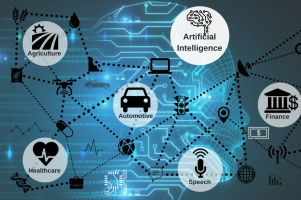AI ‘bubble burst’ will clear the air for sustained growth in key sectors, says Rethink Research

The AI bubble is due to burst after several years of sustained hype have generated unrealistic expectations that cannot be met and excessive investments that cannot possibly be paid back.
This is the key message in the latest report on AI (Artificial Intelligence) technologies from Riot Research, part of Rethink Technology Research.
The report finds the AI market will only reach US$39 billion (€34.11 billion) globally by the end of 2023, considerably less than most previous forecasts. The shortfall is explained by the fact that in some sectors, AI will flop dismally over the forecast period, while thriving in others.
A massive cull of venture capital (VC)-backed start-ups in the AI marketplace is expected during 2019 and 2020, but for most this is a good thing. In the aftermath, there will be a clear pattern of AI survivors in key vertical (and horizontal) sectors. This is a predictable repeat of earlier infamous bubble burstings, such as the dotcom collapse of 2001 which lost investors billions of dollars, but from whose ashes great tech giants such as Google and Amazon emerged.
The report explains why the AI bubble will inevitably burst as report author Philip Hunter, Rethink Research fellow, pointed out “Huge sums have been invested in AI with the upward trend still accelerating through 2018. Global Venture Capital (VC) based investments alone have risen from $3.2 billion (€2.80 billion)in 2014 to $12 billion (€10.50 billion)in 2017 while the number of funding rounds per year for AI startups doubled to around 1,300 over that period. The total invested globally in AI during 2018 alone amount to over $100 billion (€87.47 billion)taking account of money spent by governments and big corporations as well as VC funding of start-ups.”
This is more than double the expected annual return from AI even by 2023 and so there is no way this is going to generate a return on investment over the forecast period, Hunter added. “Investors will begin rolling up start-ups which fail to generate revenues into others which show promise during 2019,” said Hunter.
The only way AI start-ups have made money so far is from being acquired rather than selling products or services. Valuations have been based purely on the assessment of the people working for the company, often at as much as $10 million (€8.75 million)a head.
This dangerous method of valuing start-ups is insane – key people can leave after an acquisition – unless golden handcuffs tied them to the deal, and even that can lead to disenchantment on both sides. After the bubble bursts more realistic and sustainable valuations will be placed both on AI companies and their engineers.
Comment on this article below or via Twitter @IoTGN
